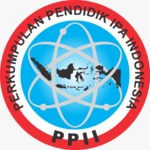Hubungan Kecerdasan Matematis Logis Di Era Milenial Terhadap Hasil Belajar Fisika
DOI:
https://doi.org/10.29408/kpj.v5i2.4632Keywords:
logical mathematical intelligence, learning outcomes, millennial generationAbstract
This study aims to determine the effect of logical mathematical intelligence on physics learning outcomes for class X students at SMAN 5 Ternate City. The method used is a quantitative method and is included in the type of case study research. The research subjects were students of class X SMAN 5 Ternate City who were selected randomly. Data analysis using tests and non-tests with 10 questions for physics learning achievement test instruments and IST intelligence test instruments for Computing Series (ZR) and Numerical (RA) Sub-Tests on the IST Test developed by LP3UI (Institute for the Study and Development of Applied Psychology at the University Indonesia), each of which consists of 20 statement items. The data analysis technique in this study used the SPSS 16.0 application, namely by testing the prerequisites and hypotheses. The results of his research show that the correlation coefficient (rxy) between logical mathematical intelligence and physics learning achievement is 0.439 and a significance of 0.000 < 0.5. Thus, H0 is accepted so that it can be concluded that "There is a positive relationship between intrapersonal intelligence and physics learning achievement for students SMAN 5 Ternate City”
References
Arikunto Suharsimi. 2002. Prosedur Penelitian Suatu Pendekatan Praktek, Jakarta: Rineka Cipta
Crain William. (penerjemah Yudi Santoso). 2007. Teori Perkembangan Konsep dan Aplikasi edisi ketiga. Yogyakarta. Pustaka Pelajar
Huri, Suhendri. (2011). “Pengaruh Kecerdasan Matematis–Logis dan Kemandirian Belajar Terhadap Hasil Belajar Matematika”. Jurnal Formatif 1(1): 29-39 ISSN: 2088-351X
Hurlock B, Elizabeth. (penerjemah Istiwidayanti & Soedjarwo). Psikologi perkembangan suatu pendekatan sepanjang rentang kehidupan Edisi kelima. Jakarta: Erlangga
Lalo, Kalfaris. (2018).”Menciptakan Generasi Milenial Berkarakter dengan Pendidikan Karakter guna Menyongsong Era Globalisasi”. Volume 12. Nomor 2. Juli 2018
Lefrancois, G. R. 2000. Psychology for teaching (10th ed). USA: Wadsworth Thompson Learning
Nelly Anne, Clermon Perret, and Jean-Marc Barrelet. 2008. Jean Piaget and Neuchâtel The learner and the scholar. New York: Psychologi Press.
PB, Triton. 2006. SPSS 13.0 terapan riset statistic parametrik. Yogyakarta: Andi
Prasetyo, Reza dan Yeni Andriani. 2009. Multiply Your Multiple Intelligences. Yogyakarta: Andi.
Rozali, A. Yuli. (2015). “Kecerdasan Interpersonal Remaja ditinjau dari Penerapan Pola Asuh Orang Tua”. SEMINAR PSIKOLOGI & KEMANUSIAAN © 2015 Psychology Forum UMM, ISBN: 978-979-796-324-8
Salim, A. (2016). “Hubungan Antara Operasi Berpikir Formal Menurut Piaget, Kemampuan Berpikir Verbal, Mekanis, Numerik, Dan Tanggapan Siswa Terhadap Pelaksanaan Problem Solving Fisika dengan Pemahaman Konsep Fluida Statis”. Prosiding semnas DEWANTARA ISSN 2528-7478
Sudarmanto, R. Gunawan. 2005. Analisis Regresi Linear Ganda Dengan SPSS. Yogyakarta: Graha ilmu
Suherman Erman, dkk. 2003. Strategi Pembelajaran Matematika Kontemporer, Universitas Indonesia
Suprapto, N & Deta, U.A. (2012). “Pembelajaran Fisika Model Diskusi Ditinjau dari Kecerdasan Intrapersonal Siswa”. Vol 2 No 1, Juni 2012 ISSN: 2087-9946
Suparwoto. 2007. Dasar-Dasar dan Proses Pembelajaran Fisika. Yogyakarta: Universitas Negeri Yogyakarta
Syah Muhibbin. 2004. Psikologi pendidikan dengan pendekatan baru. Bandung: Remaja Rosdakarya offset
Syamsuddin M. Abin. 2005. Psikologi pendidikan. Bandung: PT Remaja Rosdakarya
Utami, A. Dwi (2012). “Peningkatan Kecerdasan Intrapersonal Dan Kecerdasan Interpersonal Melalui Pembelajaran Project Approach”.Jurnal Ilmiah VISI P2TK PAUD NI - Vol. 7, No.2, Desember 2012
Uyanto, S. Stanislaus. 2009. Pedoman analisis data dengan SPSS edisi 3. Yogyakarta: Graha ilmu









